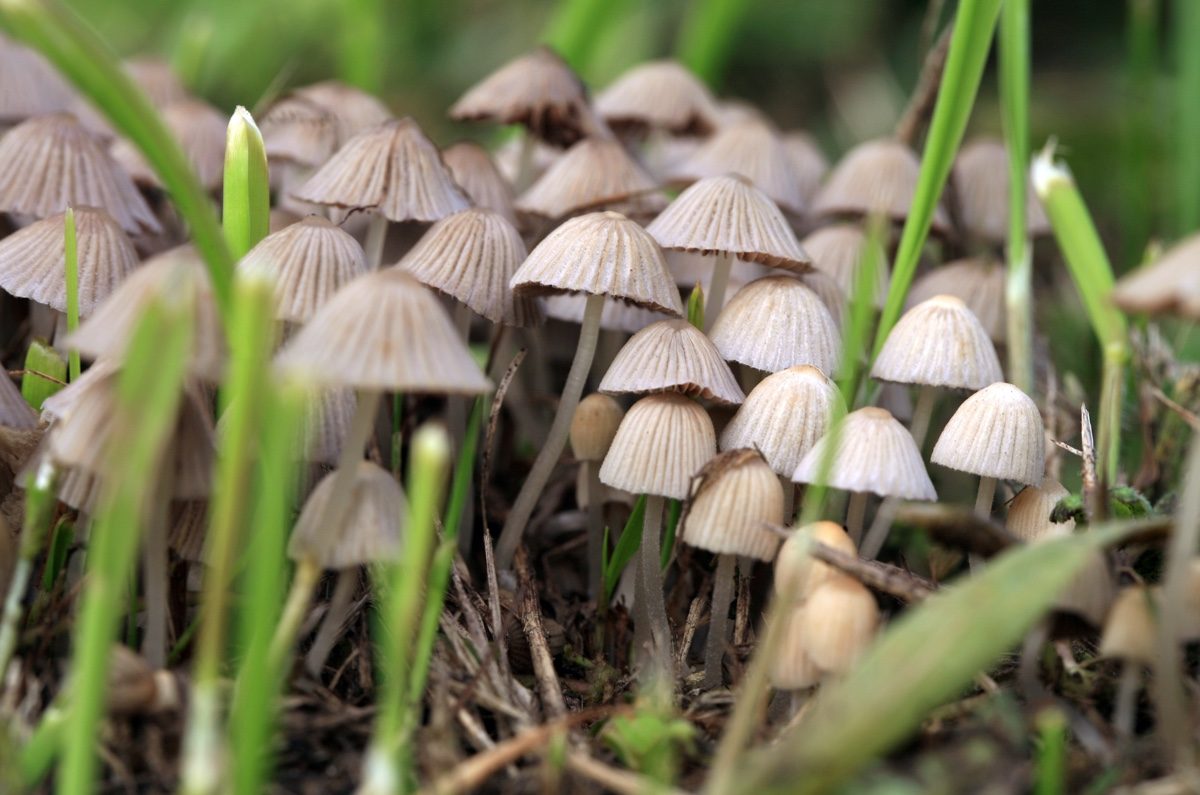Business
Do You Know How Many Kinds of Magic Mushrooms There Are on the Market?

With the growing popularity and acceptance of magic mushrooms, more people of all ages and backgrounds are taking them.
These special types of fungi have many powerful healing benefits ranging from medical to spiritual. Medical professionals have seen the way these mushrooms have safely treated many conditions particularly those that are difficult to treat, such as post-traumatic stress disorder (PTSD), depression, addiction, anxiety, and so much more.
These can be taken in several forms including brewing them into a tea, eaten raw or dried, added into food, and even turned into a powder to easily add to food or beverages.
But there are thousands of magic mushrooms out there, and one must remember that not all are considered magic mushrooms. In addition, not all are safe to take; others may be toxic and can cause a negative, even fatal experience.
Here’s what you should know about the many types of magic mushrooms out there.
Psilocybe Mushrooms
All edible and healing mushrooms contain psilocin and psilocybin, the primary hallucinogenic alkaloids responsible for the psychoactive experience, hallucinations, and potential spiritual activity that goes on when you consume it. Others contain baeocystin, though psilocybin is still more widely found.
There are many different forms of magic mushrooms though those in the psilocybe genus are the most popular and commonly found. Generally speaking, they tend to have dark spores and gills, and are found in the wild areas of the tropics and subtropics.
There are over 245 various species in this genus, and these below are the most widely consumed:
Psilocybe Cubensis: Cubensis is the most famous type of magic mushrooms. Also known as the golden cap, referring to the brown tops or the golden teachers, their caps can grow as large as 80mm wide. As they mature, the caps tend to flatten out. These shrooms tend to turn blue or purple in color when the cap or stem has been removed or damaged.
Cubensis are usually found on animal dung though they can also be easily cultivated indoors. For these reasons, it’s the most widely used type of magic mushroom
Psilocybe semilanceata: Also known as liberty caps, this species is another commonly used psychedelic. They can usually be found in grassy fields where cattle roam. They tend to be smaller, and their colors can be either light yellow to brown. It has a smaller, pointed cap.
Liberty caps are among the top most potent Psilocybin mushrooms on the planet. They are not as easily grown indoors so they are best found in the wild.
Psilocybe azurescens: Regarded by many as the strongest magic mushrooms in the world, this is one of the rarer magic mushroom varieties so be ready for a serious trip if you can find yourself some of these very special mushrooms. They can be cultivated indoors if you already have knowledge about growing mushrooms, though you can easily grow them in a garden.
Psilocybe cyanescens: Cyanescens can easily be identified by their unusually wavy caps, so some people refer to them simply as Wavy Cap mushrooms. They are another one of the more prevalent magic mushrooms found in the wild, typically found on wood chips or mulch. They are difficult to grow indoors.
Psilocybe pelliculosa: Pelliculosa mushrooms are recognizable through the broad top which resembles a bell. Though also hallucinogenic, these species are much milder than others in this genus. Because of its weak psychoactive properties, individuals may need to consume more to get a good hit and mental benefits though it’s also ideal for beginners who are still experimenting with magic mushrooms. Pelliculosa can be located in clusters or groups in the forest or along trails, particularly in coniferous woods.
Psilocybe Mexicana: Named after the country where it’s commonly found, this mushroom is another common brown cap. It’s also milder than other forms of psilocybin, due to low levels of hallucinogenic compounds and alkaloids. This mushroom is also referred to as the Mexican liberty cap, and it can be found in grass fields growing alone or in small groups.
Panaeolus cyanescens or Copelandia cyanescens
Copelandia mushrooms are a famous magic mushroom not from the Psilocybe genus. Also known as the Blue Meanies, they get this nickname because their caps and stems may change colors to blue or blue-green when bruised. These types of mushrooms are renowned for their potency, making them suitable for seasoned magic mushrooms consumers for whom psilocybe mushrooms may already be too mild. In many cases, they can contain as much as 5 times more psilocin than P. cubensis strains.
The panaeolus genus is a seriously strong type of magic mushroom. These contain more potent levels of psilocybin and psilocin, and there are more than 100 different kinds of mushrooms in this genus. They tend to have black spores and are found in cow dung, grass and forest litter; they also have gills turn black or gray when they mature, and cone or bell-shaped caps.
Conclusion
This is by no means an exhaustive list – just a summary of some of the popular magic mushroom species you may come across when looking for one to medicate or trip out with. They come in all shapes, colors, and sizes. Keep in mind that they each have a unique concentration of hallucinogenic compounds as well as particular effects.
Foraging for your own magic mushrooms is not recommended for beginners because many safe and edible species look like several toxic and fatal ones. Leave the foraging to the professionals or buy from a dispensary that you trust.
Business
New Mexico cannabis operator fined, loses license for alleged BioTrack fraud

New Mexico regulators fined a cannabis operator nearly $300,000 and revoked its license after the company allegedly created fake reports in the state’s traceability software.
The New Mexico Cannabis Control Division (CCD) accused marijuana manufacturer and retailer Golden Roots of 11 violations, according to Albuquerque Business First.
Golden Roots operates the The Cannabis Revolution Dispensary.
The majority of the violations are related to the Albuquerque company’s improper use of BioTrack, which has been New Mexico’s track-and-trace vendor since 2015.
The CCD alleges Golden Roots reported marijuana production only two months after it had received its vertically integrated license, according to Albuquerque Business First.
Because cannabis takes longer than two months to be cultivated, the CCD was suspicious of the report.
After inspecting the company’s premises, the CCD alleged Golden Roots reported cultivation, transportation and sales in BioTrack but wasn’t able to provide officers who inspected the site evidence that the operator was cultivating cannabis.
In April, the CCD revoked Golden Roots’ license and issued a $10,000 fine, according to the news outlet.
The company requested a hearing, which the regulator scheduled for Sept. 1.
At the hearing, the CCD testified that the company’s dried-cannabis weights in BioTrack were suspicious because they didn’t seem to accurately reflect how much weight marijuana loses as it dries.
Company employees also poorly accounted for why they were making adjustments in the system of up to 24 pounds of cannabis, making comments such as “bad” or “mistake” in the software, Albuquerque Business First reported.
Golden Roots was fined $298,972.05 – the amount regulators allege the company made selling products that weren’t properly accounted for in BioTrack.
The CCD has been cracking down on cannabis operators accused of selling products procured from out-of-state or not grown legally:
- Regulators alleged in August that Albuquerque dispensary Sawmill Sweet Leaf sold out-of-state products and didn’t have a license for extraction.
- Paradise Exotics Distro lost its license in July after regulators alleged the company sold products made in California.
Golden Roots was the first alleged rulebreaker in New Mexico to be asked to pay a large fine.
Source: https://mjbizdaily.com/new-mexico-cannabis-operator-fined-loses-license-for-alleged-biotrack-fraud/
Business
Marijuana companies suing US attorney general in federal prohibition challenge

Four marijuana companies, including a multistate operator, have filed a lawsuit against U.S. Attorney General Merrick Garland in which they allege the federal MJ prohibition under the Controlled Substances Act is no longer constitutional.
According to the complaint, filed Thursday in U.S. District Court in Massachusetts, retailer Canna Provisions, Treevit delivery service CEO Gyasi Sellers, cultivator Wiseacre Farm and MSO Verano Holdings Corp. are all harmed by “the federal government’s unconstitutional ban on cultivating, manufacturing, distributing, or possessing intrastate marijuana.”
Verano is headquartered in Chicago but has operations in Massachusetts; the other three operators are based in Massachusetts.
The lawsuit seeks a ruling that the “Controlled Substances Act is unconstitutional as applied to the intrastate cultivation, manufacture, possession, and distribution of marijuana pursuant to state law.”
The companies want the case to go before the U.S. Supreme Court.
They hired prominent law firm Boies Schiller Flexner to represent them.
The New York-based firm’s principal is David Boies, whose former clients include Microsoft, former presidential candidate Al Gore and Elizabeth Holmes’ disgraced startup Theranos.
Similar challenges to the federal Controlled Substances Act (CSA) have failed.
One such challenge led to a landmark Supreme Court decision in 2005.
In Gonzalez vs. Raich, the highest court in the United States ruled in a 6-3 decision that the commerce clause of the U.S. Constitution gave Congress the power to outlaw marijuana federally, even though state laws allow the cultivation and sale of cannabis.
In the 18 years since that ruling, 23 states and the District of Columbia have legalized adult-use marijuana and the federal government has allowed a multibillion-dollar cannabis industry to thrive.
Since both Congress and the U.S. Department of Justice, currently headed by Garland, have declined to intervene in state-licensed marijuana markets, the key facts that led to the Supreme Court’s 2005 ruling “no longer apply,” Boies said in a statement Thursday.
“The Supreme Court has since made clear that the federal government lacks the authority to regulate purely intrastate commerce,” Boies said.
“Moreover, the facts on which those precedents are based are no longer true.”
Verano President Darren Weiss said in a statement the company is “prepared to bring this case all the way to the Supreme Court in order to align federal law with how Congress has acted for years.”
While the Biden administration’s push to reschedule marijuana would help solve marijuana operators’ federal tax woes, neither rescheduling nor modest Congressional reforms such as the SAFER Banking Act “solve the fundamental issue,” Weiss added.
“The application of the CSA to lawful state-run cannabis business is an unconstitutional overreach on state sovereignty that has led to decades of harm, failed businesses, lost jobs, and unsafe working conditions.”
Business
Alabama to make another attempt Dec. 1 to award medical cannabis licenses

Alabama regulators are targeting Dec. 1 to award the first batch of medical cannabis business licenses after the agency’s first two attempts were scrapped because of scoring errors and litigation.
The first licenses will be awarded to individual cultivators, delivery providers, processors, dispensaries and state testing labs, according to the Alabama Medical Cannabis Commission (AMCC).
Then, on Dec. 12, the AMCC will award licenses for vertically integrated operations, a designation set primarily for multistate operators.
Licenses are expected to be handed out 28 days after they have been awarded, so MMJ production could begin in early January, according to the Alabama Daily News.
That means MMJ products could be available for patients around early March, an AMCC spokesperson told the media outlet.
Regulators initially awarded 21 business licenses in June, only to void them after applicants alleged inconsistencies with how the applications were scored.
Then, in August, the state awarded 24 different licenses – 19 went to June recipients – only to reverse themselves again and scratch those licenses after spurned applicants filed lawsuits.
A state judge dismissed a lawsuit filed by Chicago-based MSO Verano Holdings Corp., but another lawsuit is pending.
Source: https://mjbizdaily.com/alabama-plans-to-award-medical-cannabis-licenses-dec-1/
-

 Business2 years ago
Business2 years agoPot Odor Does Not Justify Probable Cause for Vehicle Searches, Minnesota Court Affirms
-

 Business2 years ago
Business2 years agoNew Mexico cannabis operator fined, loses license for alleged BioTrack fraud
-

 Business2 years ago
Business2 years agoAlabama to make another attempt Dec. 1 to award medical cannabis licenses
-

 Business2 years ago
Business2 years agoWashington State Pays Out $9.4 Million in Refunds Relating to Drug Convictions
-

 Business2 years ago
Business2 years agoMarijuana companies suing US attorney general in federal prohibition challenge
-

 Business2 years ago
Business2 years agoLegal Marijuana Handed A Nothing Burger From NY State
-

 Business2 years ago
Business2 years agoCan Cannabis Help Seasonal Depression
-

 Blogs2 years ago
Blogs2 years agoCannabis Art Is Flourishing On Etsy













